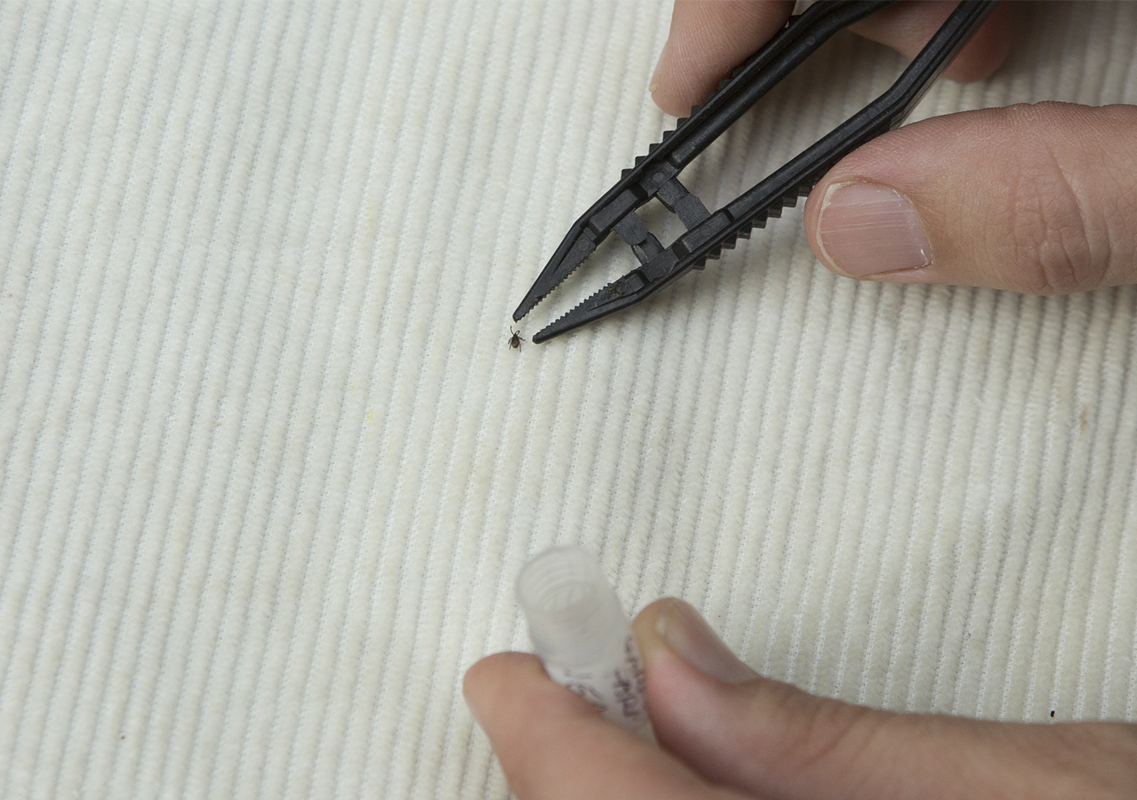Clinical assistant professor focuses on Lyme disease diagnostics research
Hopes to establish a Lyme Disease Research Center in collaboration with biomedical anthropologists at Binghamton University

Wesley Kufel is a clinical assistant professor in the department of pharmacy practice at Binghamton University’s School of Pharmacy and Pharmaceutical Sciences. With a residency in infectious diseases under his belt, he has a research interest in Lyme disease and other tick-borne illnesses.
An estimated 300,000 new cases of Lyme and other tick-borne diseases arise each year, and 95 percent of the cases occur in the Northeast and upper Midwest. Transmitted through the bite of infected ticks, Lyme disease can cause fever, headache and muscle aches, fatigue and, sometimes, a skin rash. According to the Centers for Disease Control and Prevention,if left untreated, Lyme infection can spread to joints, the heart and the nervous system.
“Lyme disease is a big issue in the Upstate New York area, which allows for high-quality research to be performed,” Kufel said.
He’s a busy man, splitting his time between his work at Binghamton University and his work as a clinical pharmacy specialist in infectious diseases at SUNY Upstate Medical University in Syracuse, where he has direct experiences with Lyme disease patients.
These dual roles with Binghamton and SUNY Upstate form a perfect match for Kufel, who is working with Ralph Garruto, professor of biomedical anthropology, to establish a Lyme Disease Research Center at Binghamton. They’re currently working on a grant proposal to become an Organized Research Center at Binghamton. Kufel is a coordinator for a number of projects for the proposed center, all relating to Lyme disease diagnostics.
“A lot depends upon getting funding, but we’re planning on having a research center for Lyme disease and other tick-borne illnesses at Binghamton University,” Kufel said. “The Department of Anthropology already has strong research in the field, and the School of Pharmacy brings opportunities from having that clinical perspective and clinical work with Lyme disease patients.”
Pharmacists help to manage patients with Lyme disease, which can present with multiple signs and symptoms, Kufel said. “Its variables make the Lyme disease diagnosis difficult. As clinical pharmacists, we’re involved in the whole patient-care picture, particularly when they are admitted to the hospital.”
Kufel is collaborating with Upstate Medical University infectious disease physicians, who also have an interest in Lyme disease research. “The areas I’m particularly interested in are improvements in diagnostic testing as well as treatment response monitoring,” he said. “I wanted to provide an introduction and collaboration between Binghamton University and Upstate Medical University to combine our resources and align our research efforts.”
There’s a need to improve the diagnosis of Lyme disease, Kufel said, because current testing may lead to false positives results. “Though multiple diagnostic tests have been used, there’s no consensus on a gold standard, ideal test. The Infectious Diseases Society of America Lyme disease guidelines were published in 2006 and haven’t been updated since then, so there’s a big need in research in Lyme disease diagnostics testing, as well as for treatment response monitoring.
“Currently, the only way to identify that a patient has improved is through resolution of signs and symptoms because there is no objective test to monitor treatment response,” he said. “I’m interested in identifying an objective test or tool to monitor response, rather than relying simply on subjective signs and symptoms for resolution.
Kufel will need to work with a collection of Lyme disease-positive serum samples to further his research. “That’s where our collaboration with Upstate Medical will be extremely beneficial,” he said.
“I’m looking forward to working with researchers here at Binghamton University and some of our partners to make this Lyme Disease Research Center well-recognized for its have high-quality research.”

